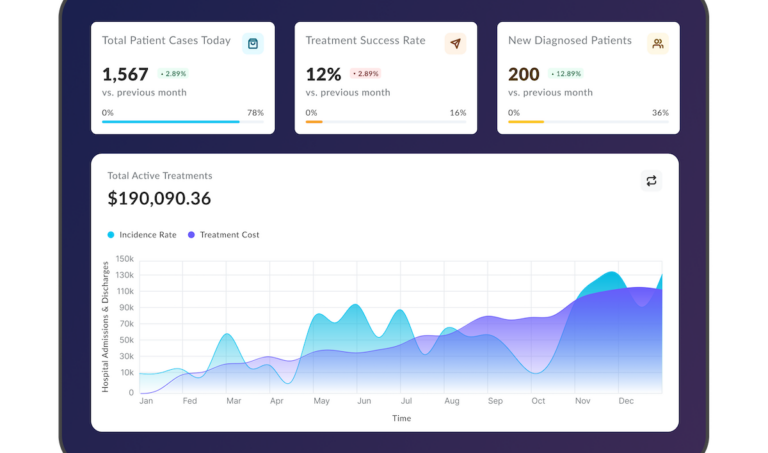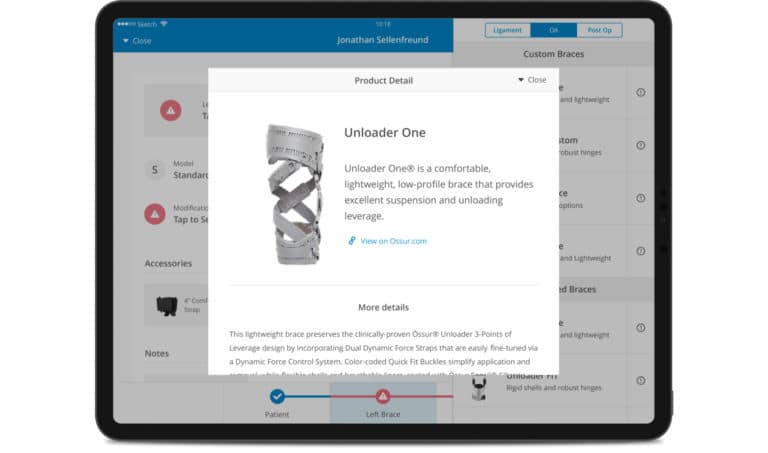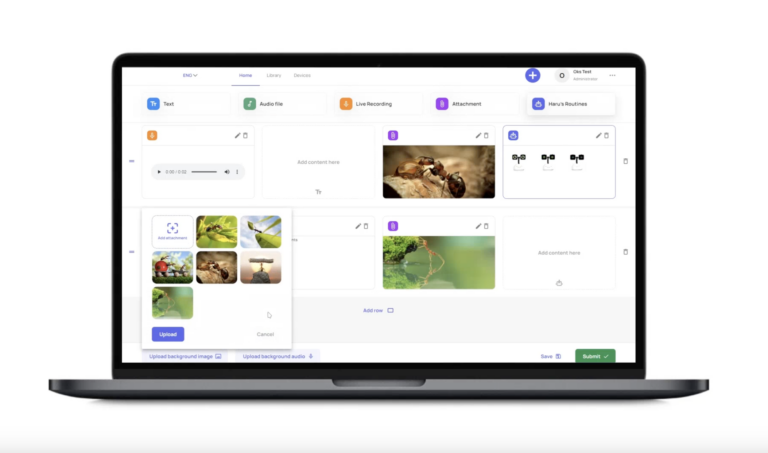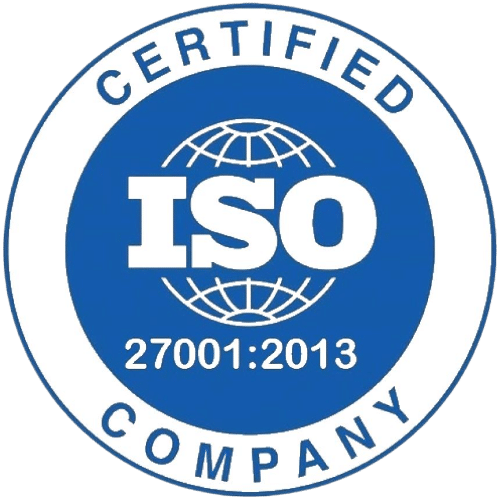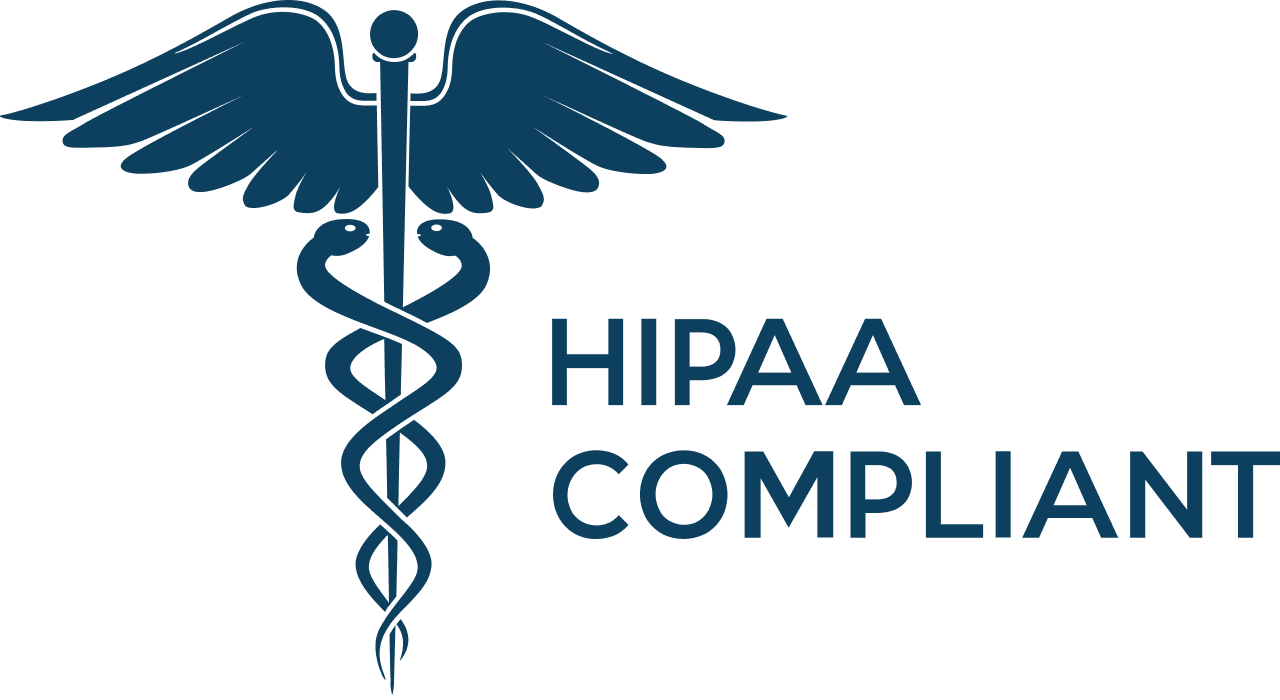RFI for Software Development: Crucial Questions to Ask a Vendor
Updated: September 21, 2021
Choosing the wrong software development vendor can damage your brand and waste your time, let alone have disastrous financial consequences for your company. While the market of distributed development grows, it’s become common for organizations to prefer outsourcing vendors for programming solutions.
IT vendor selection (which is an essential part of IT vendor management) is a meticulous process, requiring careful evaluation of a vast number of candidates. That said, you’ll save a lot of time and resources if you streamline the selection process by sending Requests for Information (RFI) for software development to several firms at once.

We provide companies with senior tech talent and product development expertise to build world-class software. Let's talk about how we can help you.
Contact usRFI (request for information) is a document that organizations send to potential vendors to gather data about their skills, size, experience, pricing, as well as products and services that they offer. Companies then use obtained information to decide which vendor suits them the most. RFI makes it much easier to compare different firms because it filters out those that don’t fit your needs from the get-go and encourages competition among the remaining ones.
There is no multi-tool RFI format to fit every company. However, understanding the essentials can help you create a well-structured software RFI template. You can download ready-made RFI template from ProjectManager.com.
We suggest dividing your request into two sections:
1. Introduction that contains information about your company and its goals, and sets a deadline for the response.
2. List of specific questions to ask vendors, including inquiries about their skills, size, resources, and pricing.
Table of Contents
Introduction section
This segment tells about your company, its background, the purpose of the RFI, required products, and a deadline for a response. It usually consists of six parts.
1. General information
Describe your organization:
- Its full legal name.
- List the CEO and upper executives responsible for the technical side.
- Brief history of the organization.
- Focus and specialization.
- Target audience.
- Regions and countries you operate in.
- Website address, email, and other contact information.
2. Information about confidentiality
Explain your confidentiality policies, intellectual, and proprietary rights. You can put them at the start of the RFI template if it’s vital for further collaboration.
3. Project summary and goals
What are you aiming for with the RFI? You should state your purpose here. For example, the goal of the request could be to see which remote development company might solve your problems most quickly and cost-effectively.
You need to clarify as much information as possible if you want potential vendors to have a clear picture of your goals.
- Does your project have a roadmap?
- What are the software requirements?
- Do you already have a tech team and need to expand it with remote teams, or do you want a whole nearshore team for your project?
- Do you want to develop your product from the ground up, or do you need additional devs for a project that’s already in progress?
- What kind of services do you want from the outsourcing company: development, team management, or business analysis?
- Are you looking for a short-term collaboration, or are you positive about an extended partnership?
Ideally, you can supply this section with visual content to make sure that outsourcing companies have a better understanding of your requests.
4. Skills and competencies
Before submitting an RFI for software development, we advise you to develop an outline of the skills, resources, programming languages, or platforms required for your project.
This section includes information about:
- The operation system (or systems) for your applications or utilities.
- The approximate size of the team that you need.
- The platforms for development.
- Technical restrictions.
- Level of skill, experience, and programming languages the team must possess.
- External or local apps required for the development.
- Deadlines or delivery schedules.
5. Specifications of the RFI process
Define the guidelines about the response format. If you want vendors to send you answers according to the structure of the template provided, you should state so here.
You must set the time frame to get a reply from vendors. Additionally, point out if your partner selection process has the following phases, like RFQ (Request for Quotation) or RFP (Request for Proposal).
6. Contact person
At the end of the introduction section, provide the contact information and the person representing your company in further communications with vendors.
Read also how to write RFP for software development and MSA.

RFI questions to ask vendors
This section contains specific questions to ask vendors, including inquiries about the vendor’s experience, references, technical skills, working methods, as well as pricing.
We advise adhering to the norms of business writing, which means that your text must have a neutral tone and it should be written with an appropriate level of difficulty.
Please note, that you shouldn’t include every question in your RFI template. List only those that are relevant to your project.
- General Information
- Provide general information about your company:
- Full legal name of the organization.
- The name of the CEO and other upper managers (including CTO, CIO, and VP of Engineering).
- Country and full address of the headquarters.
- The website address, email, telephone number, and other contact information.
- Name and contact information of the person responsible for answering RFI.
- Tell about the structure and focus of your company:
- Background and history.
- Size of the company and engineering team.
- Areas of expertise.
- Organizational structure.
- What is the vision and goals of your company?
- What services do you offer?
- What separates you from other outsourcing vendors?
- Questions about location, communications, and travel:
- How many development teams you have, and what time zones are they located in (state the time difference from UTC)?
- What’s the level of English in the available teams (intermediate, upper-intermediate, advanced)?
- State that other foreign languages are known across your teams?
- Does your contact person know [insert language here]?
- Can your employees travel to other countries at the customer’s request?
- Provide general information about your company:
- Experience and Credibility
- Tell about your experience with projects that are similar to the project we need.
- Provide the following examples:
- Case studies (at least three examples).
- Provided services (project analysis, architectural design, team management, product development).
- Expertise with each of the relevant technologies and programming languages (for example, .NET, Java, Python).
- Experience with integrating your developers into pre-existing teams.
- The number of times you generated additional value for your customers in any way.
- Provide examples, as well as and names of these customers.
- Provide at least three customer references with names of organizations and their contact information
- Project Management
- Describe how do you usually evaluate the complexity of your projects and manage resources to estimate project requirements and risks.
- Do you provide project management services?
- Do you have experience with project management tools and Agile software development (Scrum/Kanban)?
- Describe the software development life cycle methodologies you understand.
- Provide summaries of your experience mentioned methodologies (Waterfall, Iterative, Agile, and others).
- Tell about the project management and tracking systems you use to ensure timely delivery schedules.
- Technical Skills
- State the name of technical skill and the corresponding number of employees.
- Describe the employee staffing and vetting processes in your company.
- How do you maintain and develop the skills of your development teams?
- Do you have a technical expertise branch or center of innovation?
- What’s the current focus of your tech expertise branch?
- How does your company ensure consistent standards throughout different services?
- Tell about the capabilities and expertise in the following areas:
- Automated testing/deployment.
- Performance and load examination.
- Technical documentation.
- Continuous integration.
- Security check-up.
- Quality Control
- What tools do you use for quality assurance?
- What documentation standards you produce for quality control?
- Share an experience of delivering outcomes with TDD and BDD approaches.
- Describe how you manage performance and test security (stress, load, volume).
- What are the most common negative situations you experience during work on the project?
- Resource Management
- How do you minimize attrition and maximize business continuity?
- Tell about the usual ramp-up times for resources supplement.
- How does your company assign developers for different projects?
- Do you assign teams for specific projects until their completion?
- What is your methodology for dealing with volatile demand for skill assessment and knowledge management?
- Company’s Infrastructure
- What applications do you use to communicate with clients and between your teams?
- Describe the environment in your company and offices, including metrics, selected software, on-premise tech, or cloud apps.
- Data Security
- List active and passive security measures in your company.
- Physical security of the offices.
- Hardware protection.
- Software and data protection.
- Protection of intellectual property.
- List active and passive security measures in your company.
- Payment
- What is the accepted payment model in your company?
- Are there daily or hourly pay rates for different employees?
- Do you demand full or partial payment before the project completion?
- What currency can you accept invoices in?
- Do you take payment in [insert name of the currency]?
- Are your rates and payment methods negotiable?
- Pricing policy for situations when your employees need to travel abroad (if necessary).
- Supplementary information
- Tell us about the extra capabilities, skills, or services that you offer.
- Was our RFI clear in communicating our goals and requirements?
- Submit your own questions to us if you have any additional inquiries.
How to choose the right software development vendor based on the RFI answers?
If you followed our RFI template for software development, then you’re going to receive thorough and relevant data that makes it easier to compare vendors. Although, your job is still far from over if you want to pick the company that’ll suit your project the most.
To streamline your selection process further, we compiled a list of things you should pay attention to when selecting an outsourcing company.
Company’s track record
Let’s suppose your firm is looking for a remote developer with particular skillsets. Then, among the first things to consider would be his tech expertise and experience with similar projects.
Also, in case your organization is working on a massive project that requires the cooperation of multiple dev teams, you better note companies that successfully collaborated with other distributed teams before.
References
Remember the “Experience and Credibility” subsection in the RFI template? The vendors you contacted should list customer references. The client’s feedback is an excellent tool for helping you choose the right software developer. You can also double-check the customers’ feedback using Clutch or other review platforms.
The brand represents its performance. Vendors with industry recognition are prone to attract talent and have fewer problems with employee retention.
In fact, Relevant Software is regularly featured in lists of Top software organizations as a company, dedicated to engineering perfect software solutions.
Pricing
You won’t find your best match just by looking for a vendor that has the most attractive price for his services. However, the payment rate must be optimal for the scope and size of your project. Look out for the price model that suits you best. With distributed development, you’ll save money either way. For example, Ukrainian software firms tend to have much lower rates than those that work in the US or other parts of Europe.
Stability
If you are looking for a long-term collaboration, make sure that software developer can provide you with a stable team of professionals that can work for your firm as long as you want. Recurring clients are a good sign of a company’s stability. Over the past 6 years, Relevant Software provided its services to more than 150 clients and some customers benefit from our services for more than 4 years.
Organization’s infrastructure
The vendor must have a well-protected IT infrastructure and convenient location. Great workplaces contribute to creating a comfortable atmosphere at the office, which in turn boosts productivity of employees.
Scale
It’s true that strong outsourcing vendors can scale its dev teams to accommodate the needs of every client. Nevertheless, if the sizes of your firm are similar, it can enhance your collaboration. To be treated as a very important customer (VIC), you should go for a vendor who suits your size.
Talent acquisition and evaluation
Pay attention to the answers about employee staffing and vetting. Due to the access to a global talent pool, it’s essential to inquire about how offshore development companies screen the candidates before taking them on board.
You may find interesting articles about best offshore software development countries and why outsource to Ukraine.
Conclusion
Choosing a remote development team is a meticulous process that requires a lot of research and assessment. However, using our RFI format, you’ll obtain a fuller picture that will help you pick the right company.
Since 2013, more than 150 clients from the US, UK, Europe, and the Middle East trusted us with developing their web and mobile projects, and the number of recurring and satisfied customers continues to grow. If you are interested in building a remote development team, we’ll gladly receive your RFI and especially so if it’s crafted according to our template.
Our core services:
Do you want a price estimate for your project?
Do you know that we helped 200+ companies build web/mobile apps and scale dev teams?
Let's talk about your engineering needs.
Write to us